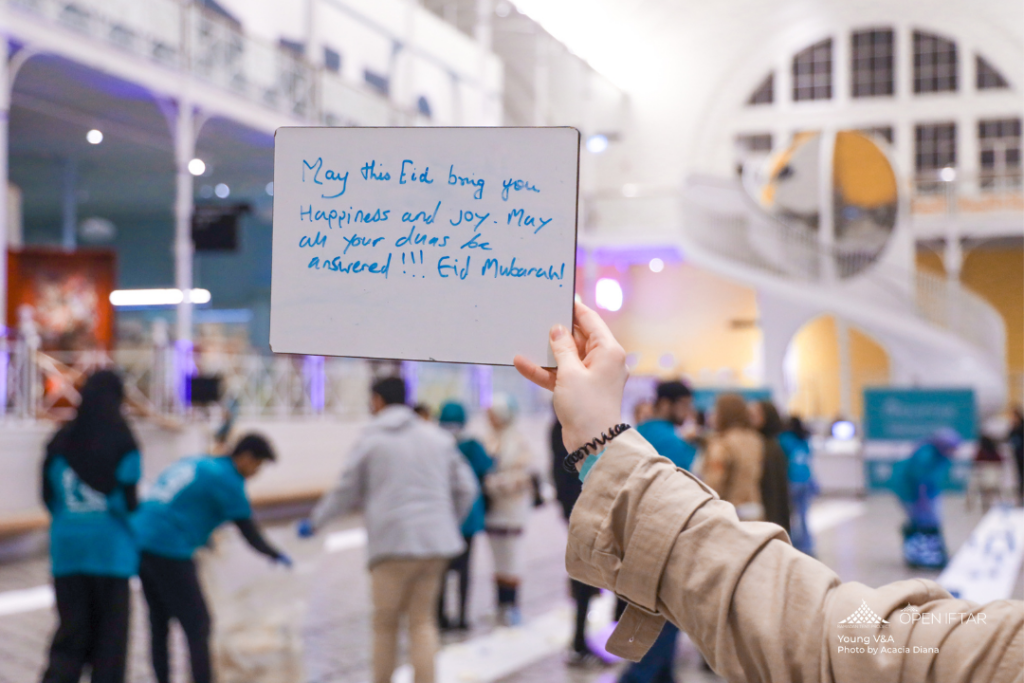
In the Islamic lunar calendar, Shawwal stands as the tenth month, embodying a time of renewal, celebration, and spiritual growth for Muslims worldwide. This month follows the auspicious period of Ramadan and marks the beginning of a new phase in the Islamic year.
Shawwal: A Time of Renewal and Rejoicing
Derived from the Arabic verb “shāla” meaning ‘to lift or carry’, Shawwal signifies the carrying forward of blessings and good deeds from Ramadan into the year ahead. It represents a period of spiritual rejuvenation, where Muslims renew their commitment to faith and strive to uphold the values cultivated during Ramadan.
Eid al-Fitr: A Joyous Celebration

Photo: Open Iftar 2024 x Young V&A by Acacia Diana for Ramadan Tent Project
The first day of Shawwal is marked by Eid al-Fitr, a joyous celebration that signifies the end of Ramadan and the beginning of Shawwal. Muslims gather for communal prayers, exchange greetings, and partake in festive meals with family and friends. Eid al-Fitr serves as a time of gratitude, reflection, and unity within the Muslim community.
The Practice of Fasting in Shawwal
Following the Sunnah of the Prophet Muhammad ﷺ, many Muslims choose to fast six days during Shawwal. This practice holds immense significance, as the Prophet ﷺ stated, “Whosoever fasts during the month of Ramadan and then follows it up with six days of fasting of Shawwal will be rewarded as if he or she had fasted the entire year.” This tradition allows believers to maintain the spiritual momentum established during Ramadan and multiply their blessings.
Acts of Devotion and Charity
During Shawwal, Muslims engage in various acts of devotion, including giving Sadaqah (charity), engaging in Dua (supplication) and Dhikr (remembrance of Allah), and continuing Quran reading and prayers. These practices serve as a means of purification, spiritual growth, and closeness to Allah (SWT).
Reflection and Spiritual Growth
As Muslims transition from Ramadan to Shawwal, it is essential to reflect on the spiritual journey experienced during the blessed month. Shawwal offers an opportunity for continued growth, reflection, and adherence to the principles of Islam. By upholding the values and practices cultivated during Ramadan, believers strive to maintain the momentum of their spiritual journey and seek blessings and closeness to Allah (SWT).
In conclusion, Shawwal holds profound significance in the Islamic calendar as a time of renewal, celebration, and spiritual growth. Through acts of devotion, adherence to Sunnah, and reflection on the blessings of Ramadan, Muslims embark on a journey of spiritual rejuvenation and closeness to Allah (SWT). May this month be filled with blessings, joy, and spiritual fulfilment for all believers.

